Related Research Articles

Yechiel Michel ha-Levi Epstein (24 January 1829 – 25 March 1908), often called "the Aruch haShulchan" after his magnum opus, Aruch HaShulchan, was a Rabbi and posek in Lithuania.

Naftali Zvi Yehuda Berlin, also known as Reb Hirsch Leib Berlin, and commonly known by the acronym Netziv, was an Orthodox rabbi, Rosh yeshiva (dean) of the Volozhin Yeshiva and author of several works of rabbinic literature in Lithuania.

Shlomo Riskin is an Orthodox rabbi, and the founding rabbi of Lincoln Square Synagogue on the Upper West Side of New York City, which he led for 20 years; founding chief rabbi of the Israeli settlement of Efrat in the Israeli-occupied West Bank; former dean of Manhattan Day School in New York City; and founder and Chancellor of the Ohr Torah Stone Institutions, a network of high schools, colleges, and graduate Programs in the United States and Israel.
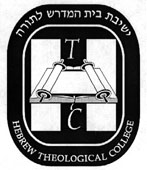
The Hebrew Theological College, known colloquially as "Skokie Yeshiva" or HTC, is a yeshiva in Skokie, Illinois. Although the school's primary focus is the teaching of Torah and Jewish tradition, it is also a private university that is part of the Touro University System which hosts separate programs for men and women. Founded as a Modern Orthodox institution, it has evolved to include students from Haredi and Hasidic backgrounds.
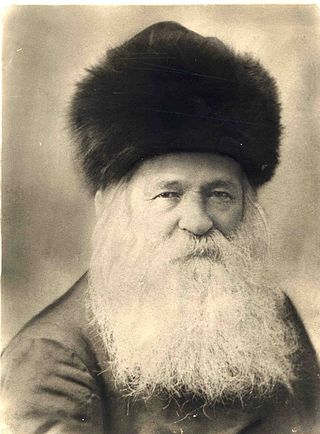
Chaim Berlin was an Orthodox rabbi and chief rabbi of Moscow from 1865 to 1889. He was the eldest son of the Netziv, Rabbi Naftali Zvi Yehuda Berlin.

Yehezkel Abramsky, also affectionately referred to as Reb Chatzkel Abramsky, was a prominent and influential Lithuanian Jewish Orthodox rabbi and scholar, born and raised in the Russian Empire, who later headed the London Beth Din rabbinical court for 17 years, before retiring to Jerusalem in 1951.

Yisrael Noah Weinberg was an Orthodox rabbi and the founder of Aish HaTorah.
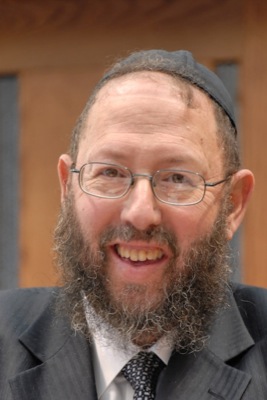
Rabbi Yissocher Frand is an American Orthodox rabbi and author. He is a senior lecturer at Yeshivas Ner Yisroel in Baltimore, MD. Raised in Seattle, Washington, he attended Ner Yisrael as a student and progressed to become a maggid shiur (lecturer). He is well known within the Orthodox Jewish community as a skilled orator, and has given thousands of invited lectures over the past decades.
Israel or Yisrael Mendel Kaplan, known as "Reb Mendel" was an American Orthodox Jewish rabbi and author. He was best known as a teacher in the Hebrew Theological College of Chicago and the Talmudical Yeshiva of Philadelphia, where he mentored many future leaders of Orthodox Jewry.
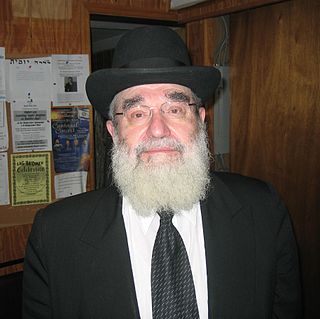
Sholom Reuven Feinstein is an Orthodox Jewish rabbi and rosh yeshiva of the Yeshiva of Staten Island, New York. He is the younger of Rabbi Moshe Feinstein's two sons, the leading posek of post-war America.
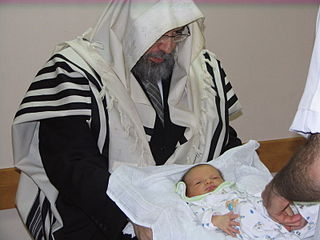
Yaacov Haber is a rabbi has taught Jews about Jewish heritage for almost thirty years.
Yitzchak Shmuel Halevi Berkovits is an American-born Orthodox Jewish rabbi, rosh yeshiva, rosh kollel, and posek in Israel. In 16 years as Menahel Ruchani of Yeshivas Aish HaTorah and halakha lecturer at EYAHT, Aish HaTorah's College of Jewish Studies for Women, he built a reputation as a lucid orator on Jewish law and philosophical topics and a mentor to hundreds of English-speaking, baalei teshuva young men and women. In 2001, he founded The Jerusalem Kollel, a rabbinic ordination and training program which prepares students for kiruv (outreach) positions around the world. In 2019, he was appointed rosh yeshiva of Yeshivat Aish HaTorah in Jerusalem. He also serves as rosh kollel of an international network of evening kollelim run by Linas HaTzedek: The Center for Jewish Values in Israel and the United States, which spreads the awareness of the laws of bein adam lechaveiro.
Irving M. Bunim was a businessman, philanthropist and a lay leader of Orthodox Jewry, in particular the Young Israel movement in the United States from the 1930s until his death in 1980. As an assistant to Aharon Kotler, he was involved in aspects of Torah dissemination, philanthropy and Holocaust rescue.

Yeshivas Knesses Beis Yitzchak was an Orthodox Jewish yeshiva, founded in Slabodka on the outskirts of Kaunas, Lithuania, in 1897. The yeshiva later moved to Kamyenyets, then part of Poland, and currently in Belarus, and is therefore often referred to as the Kaminetz Yeshiva or simply Kaminetz. The yeshiva was famously led by Rabbi Boruch Ber Leibowitz.

Yeshiva Shaar HaTorah – Grodna, often referred to as the Grodna Yeshiva or simply as Grodna, was an Orthodox Jewish yeshiva in the Belarusian city of Grodno, then under Russian rule. Founded during World War I, Shimon Shkop became rosh yeshiva (dean) in 1920.

After the German invasion of Poland in World War II and the division of Poland between Germany and the Soviet Union, many yeshivas that had previously been part of Poland found themselves under Soviet communist rule, which did not tolerate religious institutions. The yeshivas therefore escaped to Vilnius in Lithuania on the advice of Rabbi Chaim Ozer Grodzinski. In Lithuania, the yeshivas were able to function fully for over a year and many of the students survived the Holocaust because of their taking refuge there, either because they managed to escape from there or because they were ultimately deported to other areas of Russia that the Nazis did not reach. Many students, however, did not manage to escape and were killed by the Nazis or their Lithuanian collaborators.
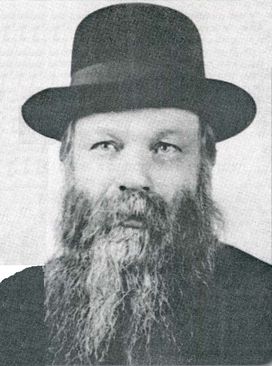
Rabbi Pesach Pruskin was an Orthodox Jewish rabbi and rosh yeshiva in White Russia before World War II, most notably in Kobrin. He was known as one of the most brilliant Torah scholars of his time.
Torah Lehranstalt, also known as the Frankfurt Yeshiva or the Breuer Yeshiva, was an Orthodox Jewish yeshiva in Frankfurt am Main, founded in 1893 by Rabbi Dr. Solomon Breuer, the rabbi of the city's seceded Orthodox community.

Rabbi Shabsi Yogel was an Orthodox Jewish rabbi in Belarus and Israel. He served as the rosh yeshiva of the Slonim Yeshiva in Europe and after the Holocaust, reestablished it in Ramat Gan, Israel.
References
General: "Rebbetzin Yocheved (Jackie) Wein, a"h", by T. Silber, Hamodia, May 31, 2006, p. A15.
- ↑ Greenwald, Yisroel (1995). Reb Mendel and his Wisdom. xvii. ISBN 978-0-89906-117-7.
- ↑ "An 'Author' in History". Jewish Action (OU).
- ↑ "Passing of Rebbetzin Mira Cohen Wein". 5tJt.com (Five Towns Jewish Times). January 12, 2018.
- ↑ Wein, Berel (1990). Triumph of Survival. p. 334. ISBN 978-1-57819-593-0.
- ↑ Wein, Berel (1990). Triumph of Survival. p. 432. ISBN 978-1-57819-593-0.
- ↑ Kahn, Betzalel (December 3, 2003). "Rabbi Oscar Fasman zt"l". Archived from the original on July 27, 2006. Retrieved April 28, 2020.
- ↑ "The Jewish Floridian".
Berel Wein, of Beth Israel Congregation
- ↑ "Congregation Bais Torah".
- ↑ Rabbi Berel Wein (2020). In My Opinion. Destiny Foundation. ISBN 978-0-578-63302-2.
- ↑ Rabbi Berel Wein (1995). Echoes of Glory. ISBN 978-1-4226-1508-9.
- ↑ (1650-1990)Rabbi Berel Wein (1990). Triumph of Survival: The Story of the Jews in the Modern Era. ISBN 978-0-8990-6498-7.
- ↑ Wein, Berel (2001). Faith and Fate: The Story of the Jews in the Twentieth Century. ISBN 978-1-57819-593-0.
- ↑ Rabbi Berel Wein (2002). Living Jewish. ISBN 978-1-5781-9753-8.
- ↑ Rabbi Berel Wein (2003). Pirkei Avos: Teachings for Our Times. ISBN 978-1-57819-739-2.
- ↑ Rabbi Berel Wein (2004). The Pesach Haggadah: Through the Prism of Experience. ISBN 978-1-57819-319-6.
- ↑ Rabbi Berel Wein (2008). Oral Law of Sinai: An Illustrated History of the Mishna. ISBN 978-1-5926-4542-8.
- ↑ Rabbi Berel Wein (2010). Vision & Valor: An Illustrated History of the Talmud. ISBN 978-1-59264-286-1.
- ↑ Rabbi Berel Wein. Jewish History: A Trilogy. ISBN 978-1-4226-1511-9.
- ↑ Rabbi Berel Wein (2011). Patterns in Jewish History: Insights into the Past, Present and Future of the Eternal People. ISBN 978-1-59264-326-4.
- ↑ Rabbi Berel Wein (2014). Teach Them Diligently: The Personal Story of a Community Rabbi. ISBN 978-1-59264-348-6.
- ↑ Rabbi Berel Wein (2019). In The Footsteps of Eliyahu HaNavi: A historical journey through the countries of our diaspora. ISBN 978-1-42262-316-9.
- ↑ Rabbi Berel Wein (2020). In My Opinion. Destiny Foundation. ISBN 978-0-578-63302-2.
- ↑ Wein, Berel (March 2022). Struggles, challenges and tradition : how Jewish communities defended Orthodoxy 1820-1940 (First ed.). Brooklyn, N.Y.: Artscroll. ISBN 9781422631041.